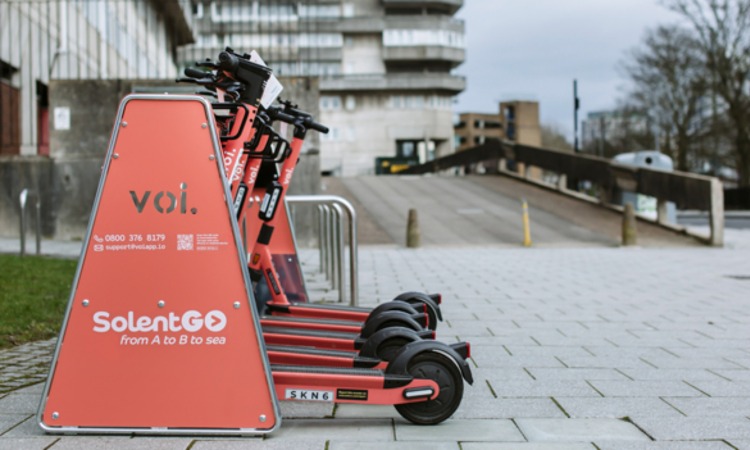E-scooters cut congestion and pollution in cities, says new study
- Like
- Digg
- Del
- Tumblr
- VKontakte
- Buffer
- Love This
- Odnoklassniki
- Meneame
- Blogger
- Amazon
- Yahoo Mail
- Gmail
- AOL
- Newsvine
- HackerNews
- Evernote
- MySpace
- Mail.ru
- Viadeo
- Line
- Comments
- Yummly
- SMS
- Viber
- Telegram
- Subscribe
- Skype
- Facebook Messenger
- Kakao
- LiveJournal
- Yammer
- Edgar
- Fintel
- Mix
- Instapaper
- Copy Link
Posted: 16 June 2023 | Intelligent Transport | No comments yet
New research by UCL reveals that replacing trips with e-scooters can lead to a significant 45% reduction in carbon emissions, highlighting their positive impact on environmental sustainability.


Credit: Voi Technology
E-scooters offer significant benefits in terms of reducing congestion, saving time, cutting emissions and decreasing car usage, according to a new study conducted by University College London (UCL) researchers. The study analyses data from 190,000 e-scooter trips in Bristol over three months and reveals that adopting e-scooters results in a 45% reduction in greenhouse gas emissions compared to the trips that they replace.
During the study, commuting times dramatically reduced, saving users a total of 4,000 hours. Furthermore, e-scooter trips replaced over 30,000 miles of motorised transport journeys, contributing to a reduction in pollution and congestion in the city.
The study, conducted by the Energy Institute at UCL, is one of the first academic assessments to consider the environmental impact of e-scooter use using real-world trip data. It also accounts for emissions produced throughout the entire life cycle of e-scooters, from manufacturing to disposal. The research utilised data from e-scooter trials conducted by Voi Technology and evaluates the environmental impact of its e-scooters across various modes of transportation.
Furthermore, the study demonstrates that replacing trips with e-scooters can result in an overall reduction in carbon emissions of up to 45%. This reduction is observed across various types of e-scooter trips, including those replacing cars, buses, taxis, as well as walking and cycling. Although the latter types of trips show a slight increase in emissions, the overall impact is still a 45% reduction.
The positive impact of e-scooters on emissions reduction is particularly notable in scenarios with average or long vehicle lifespan and average or better operational efficiency. Thus, Voi has made investments in these areas to minimise its environmental footprint and maximise benefits for cities and communities.
Leeds’ air quality shows continued improvement, new data reveals
Reducing dependence on cars and achieving decarbonisation in urban transport are crucial goals in the UK’s journey towards achieving net zero emissions. Congestion, which costs the UK economy approximately £6.9 billion per year, adds to the urgency of finding sustainable solutions.
“Essentially, the findings suggest that shared e-scooters have the potential to provide significant benefits in terms of mode shift, congestion, time savings and emissions reduction if implemented effectively,” said Emmanouil Chaniotakis, one of the study’s authors. “Local governments should make sure that they invest in those shared e-scooter programmes which are well-regulated and show proof of good fleet management and maintenance, leading to high kilometre lifespan, responsible end-of-life practices and efficient operations.”
Jack Samler, Voi General Manager UK, Ireland and France, said: “It’s great to see the massive impact e-scooters can have in transforming cities, reducing emissions and cleaning up the air around us.”
While the study has been commissioned by Voi, it has been conducted independently and has not been influenced by the company.
If you liked this, you may also be interested in:
▶ TfL sets out vision for diversified cycling growth in London
▶ Beryl unveils UK’s first fully electric public bike hire service
Related topics
Air Quality, Micro-mobility, Mobility Services, Modal shift, Passenger Experience, Sustainable Urban Transport
Related modes
Bikes & Scooters
Related countries
United Kingdom
Related organisations
UCL, Voi Technology
Related people
Emmanouil Chaniotakis, Jack Samler







